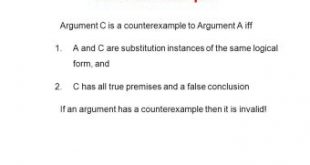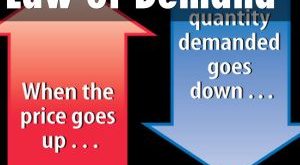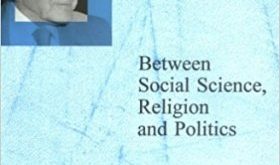from Julie Nelson Yes, economics has a problem with women. In the news recently we’ve heard about the study of the Economics Job Market Rumors (EJMR) on-line forum. Student researcher Alice H. Wu found that posts about women were far more likely to contain words about their personal and physical issues (including “hot,” “lesbian,” “cute,” and “raped” ) than posts about men, which tended to focus more on academic and professional topics. As a woman who has been in the profession for over...
Read More »The limited real-world usefulness of economics
The limited real-world usefulness of economics Whole Foods is providing the world with a very interesting economics lesson. Immediately after Amazon bought the upscale grocery store chain, it cut prices substantially for many items on the shelves. As a result, sales have boomed by around 25 percent. Was the price cut a good move? Actually, the real lesson might be how little economics has to say … Interestingly, economics doesn’t shed much light on this...
Read More »Grenzen der mathematischen Erkenntnis
Grenzen der mathematischen Erkenntnis [embedded content] div{float:left;margin-right:10px;} div.wpmrec2x div.u > div:nth-child(3n){margin-right:0px;} ]]> Advertisements
Read More »Access to Birth Control Versus Affordable Birth Control- Choose Wisely…
[unable to retrieve full-text content]Access to Birth Control Versus Affordable Birth Control- Choose Wisely…: I didn’t get yelled at enough on Twitter for making this point so I wrote a thing.
Read More »The Morgenbesser retort and revealed preference theory
The Morgenbesser retort and revealed preference theory The experiment reported here was designed to reflect the fact that revealed preference theory is concerned with hypothetical choices rather than actual choices over time. In contrast to earlier experimental studies, the possibility that the different choices are made under different preference patterns can almost be ruled out. We find a considerable number of violations of the revealed preference...
Read More »John Nash on unsound game theory
John Nash on unsound game theory [embedded content] What John Nash (!) says underlines the very fundamental methodological weakness of game theory and neoclassical mainstream economics at large. Overemphasizing the reach of instrumental rationality and abstracting away from the influence of non-economic factors, reduces the analysis to a pure thought experiment without any substantial connection to reality. Limiting theoretical economic analysis in this...
Read More »I want to talk about an interesting overconfidence experiment…
I want to talk about an interesting overconfidence experiment that one of my professors subjected us to back in the day… So the deal is that you are given 10 numbers you are supposed to come up with guesses for, say like the current Wal-Mart stock price (you’re not allowed to check), the number of jelly beans in a jar, whatever. More specifically, you’re asked to come up with a “90% confidence interval” as your guess- in other words, give a range where you think the real number is going to...
Read More »The law of demand — nothing but a useless tautology
The law of demand — nothing but a useless tautology Mainstream economics is usually considered to be very ‘rigorous’ and ‘precise.’ And yes, indeed, it’s certainly full of ‘rigorous’ and ‘precise’ statements like “the state of the economy will remain the same as long as it doesn’t change.” Although ‘true,’ this is, however — as most other analytical statements — neither particularly interesting nor informative. As is well known, the law of demand is...
Read More »On the explanatory irrelevance of general equilibrium models
On the explanatory irrelevance of general equilibrium models The model itself seems to provide no indication of how to find out under which real conditions its nomological content … has explanatory relevance. The assertion that it has such relevance if the corresponding ‘assumptions’ are satisfied is either (1) a purely logical statement — that is, if these assumptions are to be identified with the supreme hypotheses of the system itself; (2) a highly...
Read More »The problems with Randomised Controlled Trials
The problems with Randomised Controlled Trials [embedded content] ‘Ideally controlled experiments’ tell us with certainty what causes what effects — but only given the right ‘closures.’ Making appropriate extrapolations from (ideal, accidental, natural or quasi) experiments to different settings, populations or target systems, is not easy. “It works there” is no evidence for “it will work here”. Causes deduced in an experimental setting still have to show...
Read More » Heterodox
Heterodox




